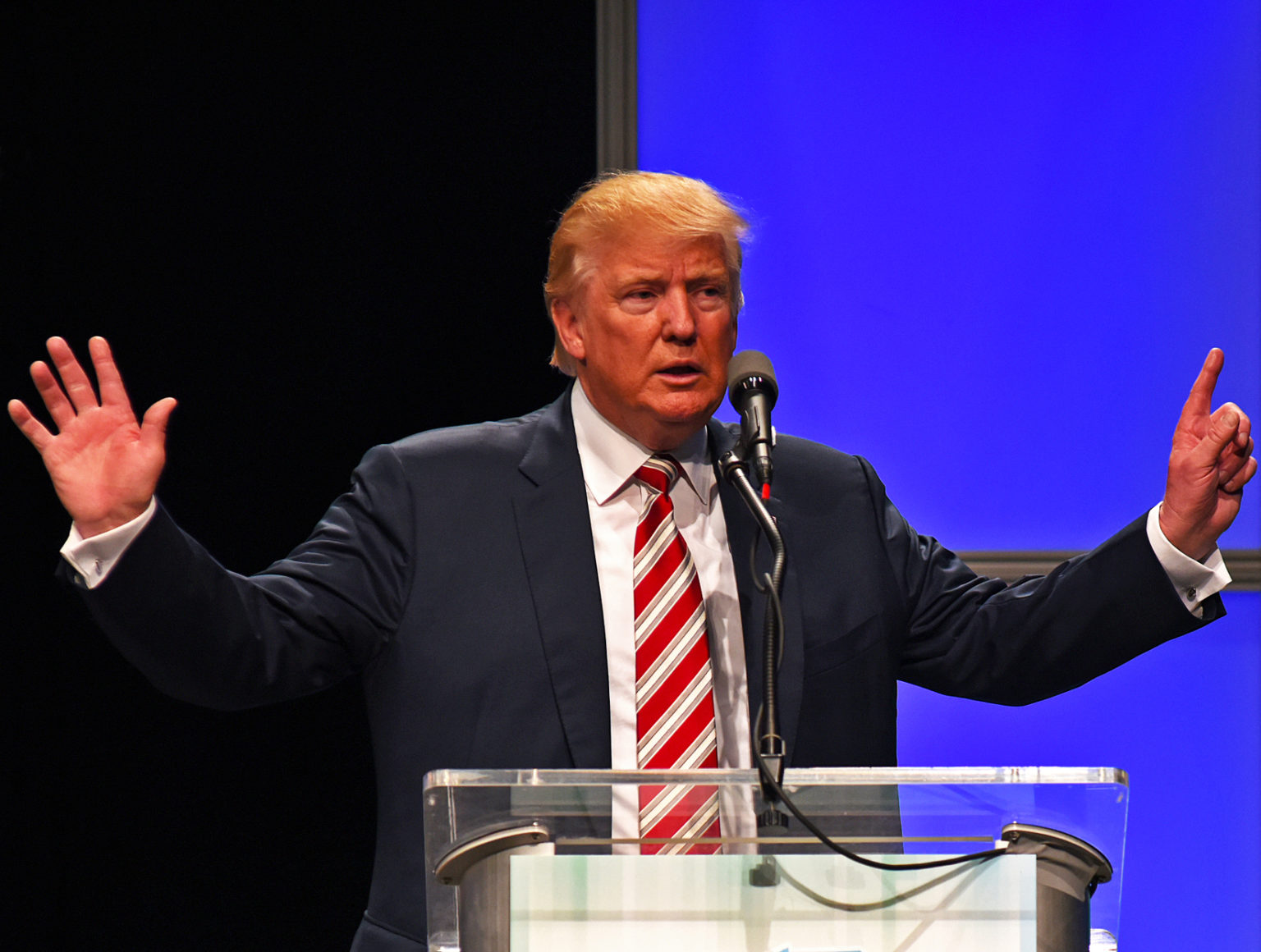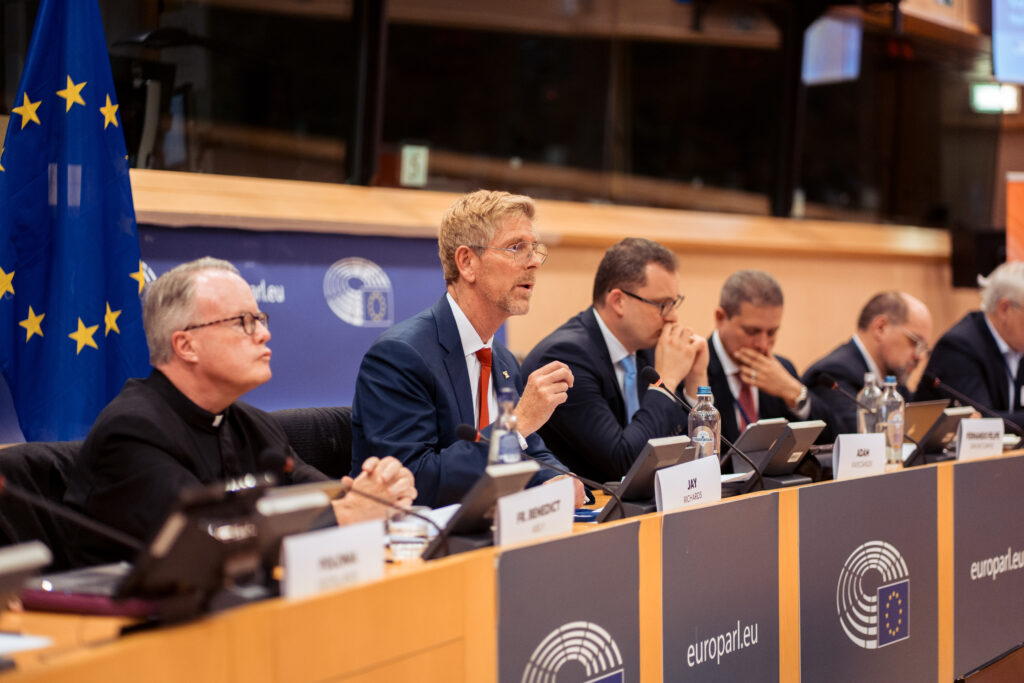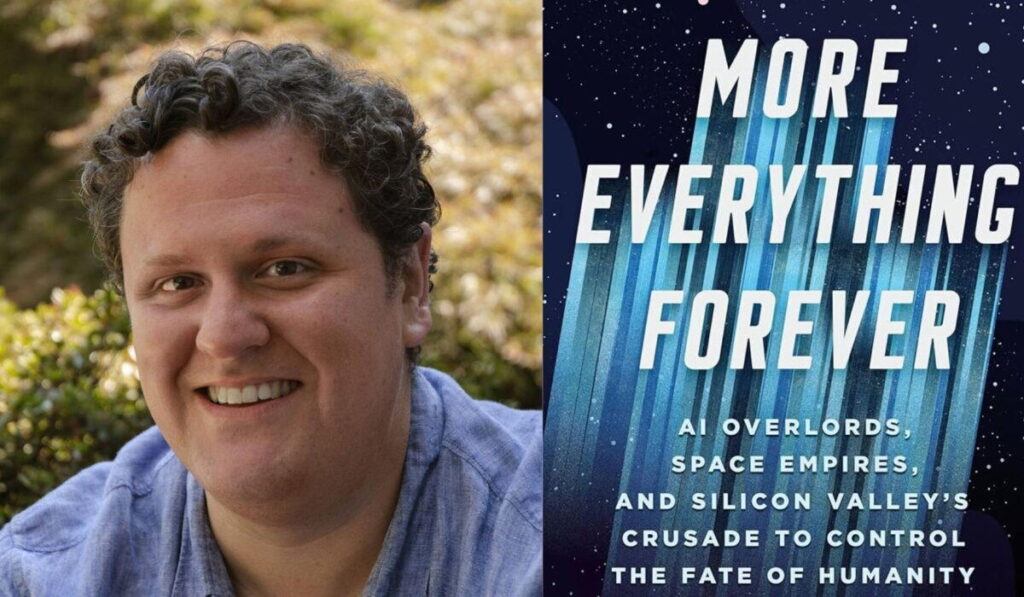Harold Hamm, America’s richest energy billionaire and the CEO of shale driller Continental Resources, spoke at the S&P Global Platts Global Energy Outlook Forum last Thursday with an unusual message.
“We’ve got a President coming in that understands the rule of law, that understands business,” Mr. Hamm said.
Mr. Trump’s promoters often cite his business experience. Mr. Trump, however, has rarely been praised for his understanding of the rule of law — which is the fundamental concept that the rules apply to everyone, from the most to the least powerful, and that governments must respect people’s rights.
Throughout his remarks Mr. Hamm used the term “rule of law” to subtly tie the concept to steps that benefit business and “strict” policing rather than the protection of human rights — the appropriation of an important phrase by a member of Trump’s inner circle and a representative of one of the country’s most politically powerful industries, with troubling implications for people’s fundamental rights under the new administration.
The way the rule of law is defined by the United Nations includes the basic principle that the rules must apply to governments as well as individuals and corporations. In the U.S., for example, the Constitution theoretically defines the powers of the government, setting limits that are supposed to protect people’s rights. “There is no rule of law within societies if human rights are not protected,” the United Nations explains.
Although he has yet to assume office, Mr. Trump has been regularly criticized for his apparent disregard for Constitutional rights and the limits placed on the president by the Constitution. The President-elect has called for people to be jailed or stripped of their citizenship if they burn an American flag (despite clear Supreme Court rulings that this would be unconstitutional), mixed his political dealings with his own personal financial interest in ways legal experts say raise grave Constitutional concerns, and decried the protections that legal due process provides those accused of crimes.
The Trump transition team also recently made headlines for sending a 74-part questionnaire to the Department of Energy, seeking the names of individuals who worked on climate-change related initiatives.
This led to a sharp response from legal experts and lawmakers, who pushed the importance of the rule of law and the limits it imposes on the President.
“I urge you to respect the rule of law in the United States,” Senator Edward J. Markey wrote in a Dec. 9 letter to Mr. Trump, “and to refrain from pursuing any illegal retaliation against government employees and contractors who faithfully executed their duties on behalf of the American people.”
This same phrase, the rule of law, which has dogged Mr. Trump throughout his political career, was picked up by Mr. Hamm, who has advised Mr. Trump for many years on energy-related issues.
Mr. Hamm raised the rule of law repeatedly in his remarks to the energy industry, focusing on the fight over the Dakota Access Pipeline (DAPL) protests. He said his company was not directly involved in the push for construction but that they had been keeping an eye on public hearings and the growth of the opposition to the project for three years.
Immediately after bringing up DAPL, he cited Singapore as a model. “I was in Singapore recently and had a conversation with the Minister of Trade there and I asked him, I said, you know, Singapore is such a great trading center today, how did that occur?” Mr. Hamm said. “He said that the first thing is we had a strong rule of law. Not everybody may take comfort in that. If you break the law it’s very strict.”
Singapore is a striking choice for a country to cite as a model for the rule of law, especially in the context of talking about political disagreements, law enforcement, and protests.
Human Rights Watch labeled Singapore’s record on rights “poor” in its World Report last year, citing the country’s extraordinarily restrictive and punitive laws on political protests, its practice of “detain[ing] persons for virtually unlimited periods without charge or judicial review,” and its use of corporal punishment, including caning, for crimes. Singapore is ranked 154 out of 180 on Reporters Without Border’s 2016 World Press Freedom Index (the U.S. came in at 41).
It is a country that’s drawn international attention for banning chewing gum as a part of a crackdown on untidiness, where news websites must register annually with authorities and face limits on their content, and where the government has the power to dissolve any organization composed of more than 10 people.
Nonetheless, Mr. Hamm turned to Singapore for his example of a place where the rule of law is very strong. And a strong rule of law is important, he told the gathered executives.
“If you don’t have strong rule of law, you know, it deteriorates very, very quickly,” Mr. Hamm said.
When it comes to the fight over DAPL, the response of law enforcement to the protests and encampments has drawn international concern over possible human rights violations.
Both the United Nations and Amnesty International sent representatives to investigate police brutality, the use of force, and potentially wrongful arrests against the self-described water protectors who have organized to oppose the DAPL project. That was before the Morton County Sherriff Department deployed water cannons in sub-freezing temperatures, injuring 300 people and hospitalizing more than two dozen. “The civil rights violations that night were deliberate and punitive,” said Rachel Lederman, a lawyer with the National Lawyers Guild, which filed a class action lawsuit alleging that police used excessive force.
There’s a danger in mixing up the concept of a strong rule of law, which requires protecting people’s civil rights, and simply supporting forceful government action and “strict” law enforcement – especially when the government’s “strong” measures leave law enforcement accused of violating the rights that the rule of law is supposed to protect.
For his part, Mr. Hamm accused the outgoing Obama administration of having already abandoned the rule of law – not by allowing the rights of indigenous people or water protectors to be violated, but by delaying the easement for the Dakota Access pipeline.
“We had a strong rule of law. We knew what that law was, and we abided by it. And it made us great,” he told those gathered at the Global Energy Outlook Forum, billed as a “high-level leadership event which annually draws nearly 200 senior executives” and energy officials from around the world. “All at once, you’ve got a President that doesn’t stand up for the rule of law,” he said, referring to Mr. Obama, “calling in the Justice Department at the last minute and got involved and shut that project down.”
The rule of law includes the fundamental principle that laws should “[c]learly written and easily accessible” to create “certainty” and stability, and requires an independent court system that can oversee dispute resolution, as wells as efficient public institutions, according to the UN Global Compact. Businesses generally enjoy the kind of predictable atmosphere that the rule of law creates in market-based economies. But the definition does not end there; it includes protecting human rights.
Mr. Hamm is not the only DAPL advocate to pick up the phrase “rule of law” recently.
It was also used by Energy Transfer Partners, L.P, the company building the Dakota Access pipeline when the Army Corps of Engineers announced that it would require more analysis before granting an easement allowing the pipeline to cross a river. “The White House’s directive today to the Corps for further delay is just the latest in a series of overt and transparent political actions by an administration which has abandoned the rule of law in favor of currying favor with a narrow and extreme political constituency,” the company’s statement reads.
“The President’s violation of the rule of law has made things worse and is resulting in escalating costs for the Dakota Access Pipeline,” the Institute for Energy Research, a Koch Brothers-tied think tank, also wrote in a Nov. 28 article.
It’s important to note that these pipeline advocates are not simply saying that the Obama administration’s interpretation of the nation’s laws was wrong – that kind of disagreement should be taken to the courts, which happens routinely in countries with a strong rule of law. Instead, they are saying that by delaying the DAPL project, the Obama administration rejected the rule of law, a much more serious accusation – despite the fact that there has been no indication that the Obama administration would refuse to follow a court’s ruling on DAPL.
Fears about Mr. Trump’s authoritarian bent – including his personal lack of respect for the courts – have been expressed across the political spectrum. “This is how authoritarianism starts, with a president who does not respect the judiciary,” David Post, a retired law professor and blogger at the right-leaning Volokh Conspiracy told The New York Times in June, as he discussed threatening remarks Mr. Trump made about a judge who heard two class action lawsuits against Trump University. “You can criticize the judicial system, you can criticize individual cases, you can criticize individual judges. But the president has to be clear that the law is the law and that he enforces the law.”
Mr. Hamm’s remarks on the rule of law come at a time when the oil and gas industry worldwide is concerned about political upheaval.
“It seems there is an overarching new sentiment that we need to address,” John Rossall, Executive Director North America for Repsol, which is based in Spain and one of world’s 15 largest oil and gas companies, said at the Platts forum before Mr. Hamm’s remarks. “The world is telling us that they don’t like the system or how it works.”
Mr. Hamm has counseled Donald Trump on energy for years, so his advice to the President-elect matters. He was rumored to be Mr. Trump’s pick for Energy Secretary – though he declined a direct role in Trump’s administration in early December.
“It’s not under speculation,” Mr. Hamm confirmed on Thursday. “I’ve got a full-time job at Continental.”
Change should happen fast and dramatically once Trump assumes office, he predicted.
“I think business would be very, very disappointed if it took Donald Trump 100 days to get rid of all of these executive orders signed by Obama,” Mr. Hamm said.
Revoking those executive orders would have big implications for the oil and gas industry – as well as the climate. Some of the most quickly reversible executive orders include those telling federal agencies to prepare for impacts from climate change, requiring the government to reduce its own greenhouse gas emissions, and guiding states on controlling air pollution from oil and gas drilling.
In his remarks Thursday, Mr. Hamm often said a lot in just a few words.
“It’s almost a little bit of euphoria,” said the man who is widely seen as having the ear of the winning candidate for President and who personally raked in $3 billion in just three hours on Nov.30th, after a major OPEC deal was announced.
And that might just be the tip of the iceberg for fossil fuel executives like Mr. Hamm, if Mr. Trump uses his new power to aggressively push the interests of businesses.
“I see good things happening going forward,” Mr. Hamm said.
Photo Credit: Laura Evangelisto, Copyright 2016
Subscribe to our newsletter
Stay up to date with DeSmog news and alerts






